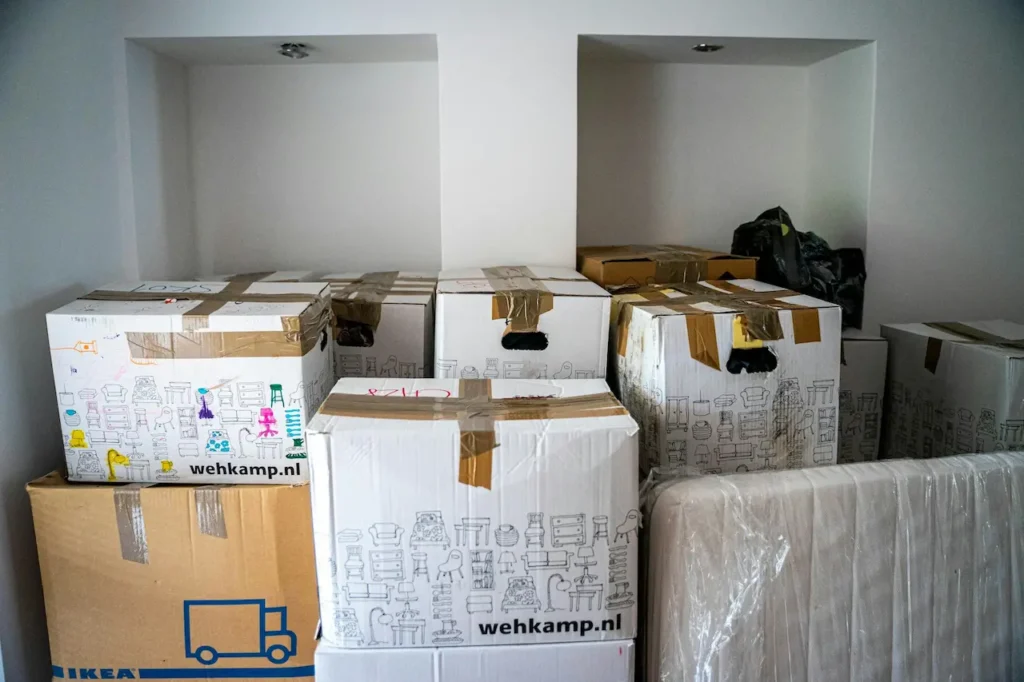6 Things to Consider When Moving to New South Wales
Whether you’re relocating for a new job, education, or family matters, New South Wales—specifically Sydney—is a superb place to craft a new life for yourself and your loved ones.
From its decent healthcare system to its economic significance in the Asia Pacific, this world-renowned Australian region is teeming with opportunities for people across the country—and the world at large.
Outside the work setting, New South Wales is filled with plenty of things to see and do to suit various personalities and interests. From great hiking spots to invaluable networking opportunities, you’ll rarely come across a dull day in NSW.
With that said, it’s important to take a step back and observe the practicality of the move. Asking yourself the right questions and doing the right tasks before the relocation is essential.
Do you have a house or accommodation waiting for you in NSW? What’s your financial situation going to be like? Will anyone help you with the move?
These questions are tough to ask and answer—but they’re essential to help you navigate the move more seamlessly. To ensure that you won’t miss any significant aspect of the move, this guide will walk you through things you must consider before moving to Australia’s most dynamic state.
Table of Contents
Toggle
Let’s jump right into it.
-
Cost of Living in NSW
Let’s not beat around the bush: living in NSW, specifically Sydney, is expensive. It consistently ranks as one of the top most expensive cities in the world, with a single person being set back about $5,000 AUS monthly on average to cover living expenses.
If you’re lucky and have accommodation covered for you, then that figure drops to $2,000 AUS monthly, which is slightly better but not entirely cheap, either.
Suffice to say, rent is by far the biggest expense you’ll need to account for in Sydney. The city is also facing a noticeable housing crisis, which is raising median rental prices higher than in other Australian cities at a rapid rate.
If you want to live near the city, you’ll have to stomach a larger expense or live with multiple housemates. However, by living farther away, you may need to buy a car or suffer through hour-long commutes. If you’re bringing your family and dependents along, then you’ll also have to account for their comfort as well.
In essence, there’s a trade-off you must consider and align with your lifestyle.
On top of rent, you’ll also have to pay for other monthly expenses like food, transportation, and utilities. If you’re coming from a city within Australia that isn’t Melbourne or any developing country overseas, the rates will likely be higher than what you’re used to paying. You can compare these cost-of-living prices in Expatistan to get a better idea of your purchasing power.
In any case, it’s essential to account for the cost of living in Australia before making the major decision to move there. Ensure that your new job opportunity or your savings are enough to cover your expenses.
You’ll likely be earning more than in your previous company, but these monthly expenses and fixed expenses can easily wipe that amount, so be sure to account for Australian prices when making a budget.

-
Financial Management in Australia
Finances will play an integral part in helping you settle smoothly into Sydney and the greater New South Wales area.
For people based overseas, it’s good to familiarise yourself with Australia’s major banks beforehand, as one of the first things we recommend every aspiring resident to do is to open a bank account when moving to Australia.
Some popular Aussie banks include Westpac, Commonwealth Bank, ANZ, and NAB—and they each offer promotional account deals to newcomers to the country that you can use.
It’s a good idea to open multiple bank accounts—one for transactions and another for savings. This helps you remain disciplined when it comes to budgeting your cash flow, which is crucial in a city as expensive as Sydney.
Furthermore, if you’re planning to work in Sydney and become a permanent resident, then you’ll have to fulfil your tax obligations and understand how superannuation works. You must have a tax file number (TFN), and it’s likely that you’ll be subjected to higher income tax rates if you’re a non-resident.
By understanding how Australia’s financing and tax system works, you’ll grow your income within the bounds of the law. If you need assistance with more complex financial matters, you can consult with a tax professional or a financial advisor from NSW for more specific advice.
-
Relocating Your Items
Another consideration you should make is how to physically move your belongings to New South Wales.
If you’re from Australia, you can contact interstate removalists and have them carry and unload your packed belongings through their services. That said, be sure to pack and follow a packing checklist beforehand to ensure you don’t lose track of time and leave your tasks to the very end (a very stressful ordeal!).
For international-based individuals, you may consider shipping your important belongings by sea or air. Services like FedEx, DHL, and Australia Post help people conduct large-scale moves. They’re very reliable and professional, so feel free to pick the one with the best balance of shipping costs and delivery times.
It’s okay to bring in only a few stuff if you’re planning to reside in NSW for the short term. You can choose to donate, discard, or sell the bulk of your materials to simplify the process before the move.
Prospective long-term residents may benefit from spending a little extra to bring bits of home with them. You shouldn’t horde your things, of course, but if you have things of sentimental value back home, now would be the best time to bring them with you before you leave your place for good.

-
Updating Your Utilities and Documents
Once you’ve moved to New South Wales, you should ensure that your utilities and personal documents are fully transferred and up-to-date in your new accommodation.
AGL and EnergyAustralia are some of the best providers of energy and gas in the region. Sydney Water will supply water services in the main city. Be sure that your accommodation has an immediate connection to these utilities before you move by contacting their office and requesting a connection.
Furthermore, get your internet connection and phone data plan set up if you haven’t done so yet. Telstra and Optus are some of the best data providers if you want fast speed and wide coverage.
Ensure to also schedule a disconnection time in your old home. This is to ensure that you’re not paying for unutilised utilities.
Moreover, notify relevant businesses like banks, government agencies, and healthcare providers about your new address when you can. Your employer and children’s school should also be notified of this change.
By getting all these things done sooner rather than later, you can move to NSW without feeling super stressed and make the transition process much smoother.
-
Finding Homes
Finding homes in New South Wales is a rising challenge, with fewer homes and apartments being listed with each passing year. The median house in Sydney is priced over $1.2 million AUD too, which is no small figure. If you want to rent a home, you need to use platforms like realestate.com.au to find available properties.
The process doesn’t end there. You also have to submit an application and show proof of income, ID, and rental history for listers to gauge your profile and ability to pay. You’ll also need to make your own personal assessment, like minimum lease duration, to ensure that both you and the landlord are on the same page.
Furthermore, you’ll also have to scout for home loans and get pre-approvals if you want a chance to have a portion of the purchase price covered. You may also browse through government grants to see if you qualify for subsidies or stamp duty exemptions. Typically, first-time buyers can get these grants if their application is strong enough.
-
General Safety and Risk Management
New South Wales and Australia in general are blessed with little crime and a safe environment. That said, there are still some threats that lurk about in this part of the world, and as a newcomer, it’s essential to be aware of these risks to keep yourself safe.
Here are some tips to keep in mind:
- Wear sunscreen: The sun in Australia emits strong UV rays even in cloudy weather. Always wear at least an SPF 50 sunscreen when outdoors.
- Emergency number: It’s 000 for police, fire, and ambulance services.
- Road safety: Drive on the left side. Refrain from speeding and distracted driving to avoid a collision with other vehicles, pedestrians, and wildlife.
- Bushfires: Check Fires Near Me NSW to see how to respond to a bushfire in your local vicinity.
- Beach safety: Australia is known for having strong rip currents and dangerous marine life. Avoid swimming between red and yellow flags.
By following these tips, you can transition to Aussie life more smoothly. We wish you the best in your upcoming relocation!